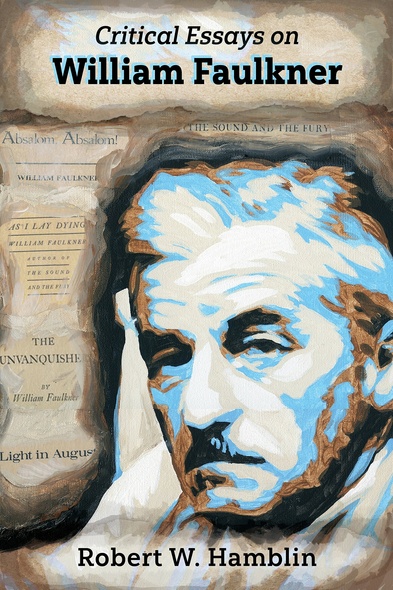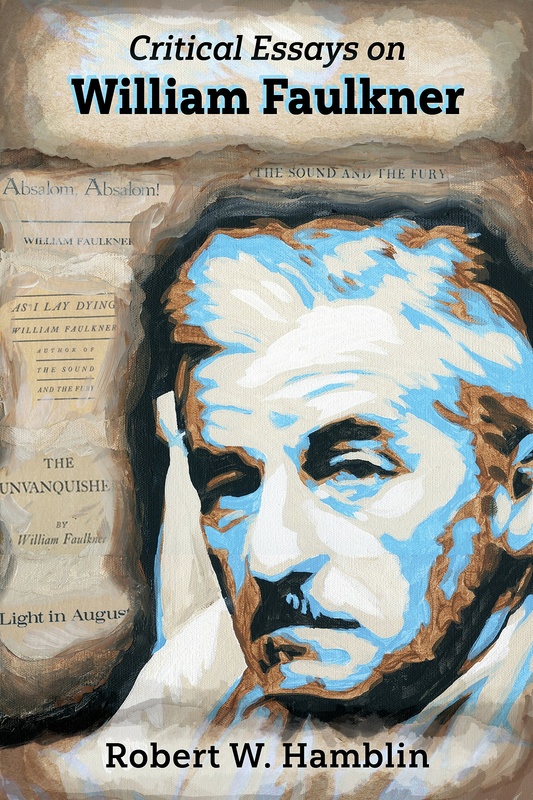
Critical Essays on William Faulkner compiles scholarship by noted Faulkner studies scholar Robert W. Hamblin. Ranging from 1980 to 2020, the twenty-one essays present a variety of approaches to Faulkner’s work. While acknowledging Faulkner as the quintessential southern writer—particularly in his treatment of race—the essays examine his work in relation to American and even international contexts. The volume includes discussions of Faulkner’s techniques and the psychological underpinnings of both the origin and the form of his art; explores how his writing is a means of “saying “no' to death"; examines the intertextual linkages of his fiction with that of other writers like Shakespeare, Twain, Steinbeck, Warren, and Salinger; treats Faulkner’s use of myth and his fondness for the initiation motif; and argues that Faulkner’s film work in Hollywood is much better and of far greater value than most scholars have acknowledged.
Taken as a whole, Hamblin’s essays suggest that Faulkner’s overarching themes relate to time and consequent change. The history of Faulkner’s Yoknapatawpha stretches from the arrival of the white settlers on the Mississippi frontier in the early 1800s to the beginnings of the civil rights movement in the 1940s. Caught in this world of continual change that produces a great degree of uncertainty and ambivalence, the Faulkner character (and reader) must weigh the traditions of the past with the demands of the present and the future. As Faulkner acknowledges, this process of discovery and growth is a difficult and sometimes painful one; yet, as Hamblin attests, to engage in that quest is to realize the very essence of what it means to be human.
Critical Essayson William Faulkner brings together essays, research guides, and lectures from across the career of Bob Hamblin, one of the most prominent Faulkner scholars of his generation. These works are an archive of Faulkner criticism in themselves and offer perceptive insights into Faulkner’s work, share revealing context from the archives at Southeast Missouri State University, and demonstrate changing approaches to Faulkner criticism.
Robert W. Hamblin has had a special career that has taken him into every conceivable dimension of Faulkner studies, from working with Oprah’s Summer of Faulkner to the Brodsky Collection to the Center for Faulkner Studies to Teaching Faulkner: Approaches and Methods. Like such forebears as Cleanth Brooks and Noel Polk, Hamblin has been an important face of Faulkner to both academia and the general public. Along the way, he has produced a body of work that has moved lithely through the full range of Faulkner’s writings and biography to enlighten scholars, teachers, and enthusiasts. These collected essays exemplify that career, blending solid discussions that can orient any reader in Faulkner’s difficult prose while also offering to scholars powerful theoretical rubrics such as Faulkner’s ‘saying No to death’ and his meditations on Faulkner and the nature of art.
Robert W. Hamblin is professor emeritus of English and founding director of the Center for Faulkner Studies at Southeast Missouri State University. He has authored or edited nineteen books on Faulkner, including A William Faulkner Encyclopedia; Myself and the World: A Biography of William Faulkner, published by University Press of Mississippi; and My Life with Faulkner and Brodsky.





